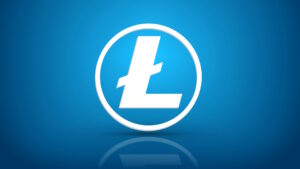The emergence of central bank digital currencies in several countries (CBDC) could represent a once-in-a-lifetime opportunity for the International Monetary Fund (IMF) to directly control, influence and manipulate individuals’ lives, their governments and entire economies.
IMF unveils CBDC platform scheme
During a presentation at a conference in Morocco, IMF Managing Director Kristalina Georgievahe announced the plan to introduce a universal Central Bank Digital Currency (CBDC). The announcement comes as governments worldwide enact policies to eliminate physical cash altogether, despite offering assurances to the contrary.
According to Georgievahe, the IMF plans to roll out one single digital currency that will be accepted globally in an effort to “connect countries” and make transactions “fairer.”
“At the IMF, we are working hard on the concept of a global CBDC platform,” Georgievahe stated.
“To have transactions more efficient and fairer, we need systems that connect countries,” she continued.
“In other words, we need interoperability.”
The IMF chief argued that global digital currencies would “give more people access to financial services and bring the cost down.”
Central planning
Of course, buy into a CBDC which would be in the hands of unelected technocrats could usher in a hyper-centralised dystopia. There was no mention of this highly probable outcome, however.
According to the IMF, CBDCs are the bandwagon that no self-respecting tyrant should miss out on. The supranational organisation is working tirelessly on creating centrally-controlled digital money which severely restricts privacy, security, civil rights, and reduces money to a coupon code.
Indeed, however hard countries like China are working on CBDCs, the IMF appears to be striving to work even harder!
“At the IMF we are working hard on the concept of a global CBDC platform to trade and to manage risks,” Georgieva, a former (unelected) EU bureaucrat, told her audience.
This hard work also encompasses a concerted effort to push for digital ID adoption, which critics view as a means to restrict movement of people, such as was done during illegal, unnecessary and unconstitutional lockdowns in 2020-2021.
A CBDC threatens civilians directly
In order to get ‘buy in’ to the idea, the direct negative consequences on people’s lives are never mentioned.
Such consequences include, but are not limited to:
- The inability to purchase certain goods, services, items (e.g. meat, groceries, fuel, anything the financial controllers choose).
- Direct political persecution by shutting down opponents’ funding (Canada).
- No financial privacy due to lack of segregation of powers or country-specific regulatory frameworks or constitutional protections.
- Inability to spend coupons after expiration date.
- Inability to save money, capital controls on your finances.
- Removal of cash transactions, the last bastion of financial freedom from the old-guard.
At the same time, the IMF and government-controlled puppets who promote CBDCs vocalise positive concepts such as: financial inclusivity, lowering costs, cross-boarder payments. Notably, a mix of private and decentralised public infrastructure already solve these supposed problems with assets such as Tether (USDT stablecoin), Bitcoin, Litecoin, Monero (decentralised cryptocurrencies).
Sometimes, corporate media outlets intentionally or perhaps unintentionally mislead their audiences by referring to CBDCs as ‘cryptocurrencies’, but central bank digital currencies have nothing to do with decentralised digital money. After all, the rise of decentralised cryptocurrencies is precisely because central banks cannot touch it.
Successful CBDCs would cement a financial system that’s firmly controlled by unaccountable opaque entities – the same kind of people who openly persecuted Canada’s Freedom Convoy protestors in 2022 under Trudeau.
Regardless, the IMF now has a blueprint for its global, i.e., “cross-border CBDCs.”
The IMF has been openly hostile to countries adopting Bitcoin, pressuring governments to go deeper into debt instead of pursuing financial reform via crypto.
Join the telegram channel for updates, charts, ideas and deals.
Did you like the article? Share it!


